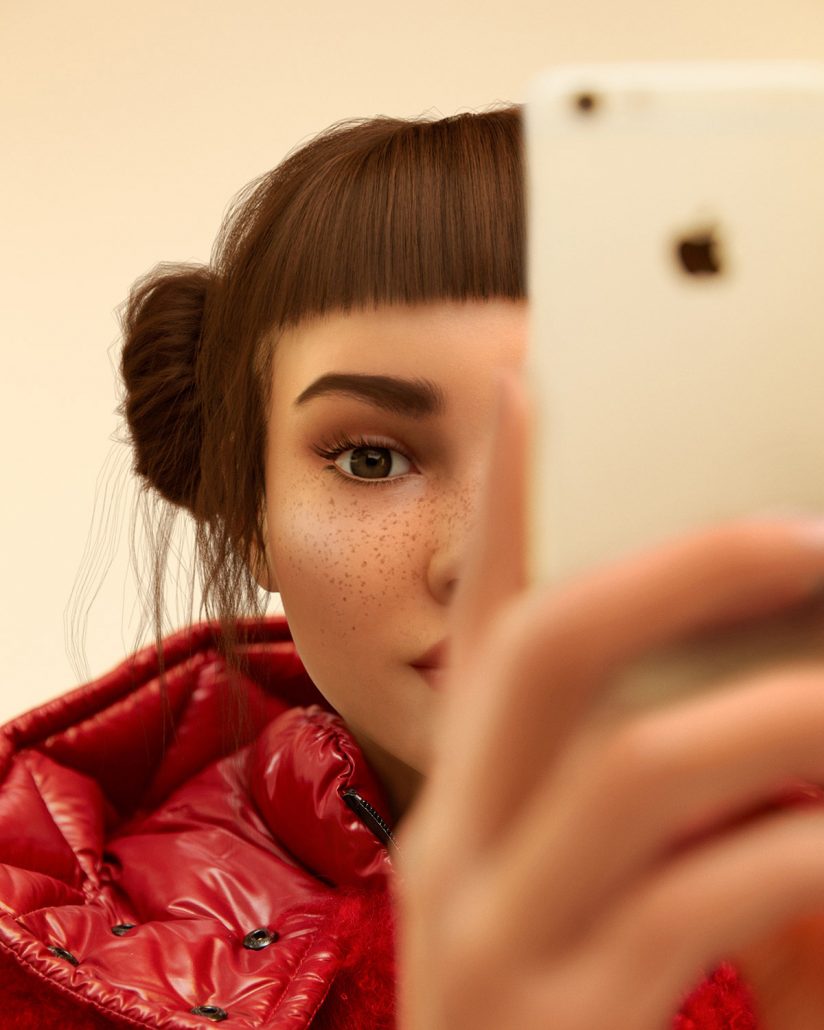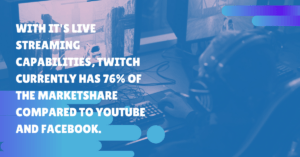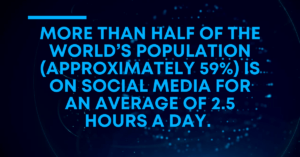There are pretenders in our midst. There are fakes mixed in with the usual trove of influencers. They look like them. They attend Coachella and take perfectly filtered photos. But it’s not real. Last week many people were suddenly introduced to an influencer named @LilMiquela, aka Miquela Sousa. She looks just like you think she would, only she isn’t real. In two years of existing this seemingly art project-turned influencer has garnered more than 1 million followers, which begs the question, could the future of influencers be virtual reality?
Who is LilMiquela?
Miquela is a computer-modified image of your average street-style girl. Her profile started in 2016 and gained marginal attention as fans debated whether or not she was real. Miquela skyrocketed to real influencer status more recently. Prada tapped Miquela an Instagram takeover during Milan Fashion Week. There, she posted a series of 3D-generated Instagram stories at the show’s venue and took photos in hyperreal renditions of Prada’s ready-to-buy Spring/Summer 2018 collection. She even gave Prada’s Instagram audience a tour of the show space, courtesy of an iPhone-controlled drone.
Then last week she burst into the collective consciousness of less sophisticated Instagram users when she was “hacked” by another, less popular, virtual influencer @bermudaisbae. A soap opera of blackmail and deceit followed ultimately ending the “is she, isn’t she” guessing game. She admitted she wasn’t real. Instead, she says she’s a robot, which is unlikely, but hey everyone likes a good narrative. For a full recap of the drama, check out the Cut’s article breaking it all down.
A post shared by *~ MIQUELA ~* (@lilmiquela) on
Alright, that was a weird bit of drama, but what’s the point?
Right, there is a point here. The point is that the Lil Miquela hack and narrative is paying off. Miquela’s account gained thousands of followers during the drama and after all of it we figured out who created the virtual reality account: a company called Brud.
From the Cut: “On Friday, Brud shared its own side of the story on Instagram. “We’re a small team of artists, engineers, roboticists, and activists operating with the belief that technology can help bring about both a more empathetic world and a more tolerant future,” the company explained in a post.”
That’s all well and good, but beyond that sunny statement, Brud has acquired some serious capital. Firms like Sequoia Capital have backed the company and other notable investors from Silicon Valley and New York including BoxGroup and SV Angel are rumored to be backing the company. According to TechCrunch, the company secured somewhere around $6 million in its most recent funding round.
While Brud’s mission statement is a bit idealistic and vague, the serious money suggests that investors believe in the marketing power of virtual reality influencers. Fashion magazines like High Snobiety, King Kong Magazine, and V Magazine have run Miquela’s images. According to Sideqik, Miquela’s average Instagram post earns more than $28,500 in earned media value.
Why virtual reality influencers could be the future
Miquela and her ilk offer a convenient sidestep to the ever-constricting regulations surrounding influencer marketing. A work of art doesn’t need to disclose brand partnerships. A virtual reality creation doesn’t technically endorse anything.
A post shared by *~ MIQUELA ~* (@lilmiquela) on
From a marketing standpoint, not much separates Lil Miquela from a flesh and blood influencer. She is only marginally less real. Influencers are just an amalgamation of good lighting and angles and apparel handouts that make them aspirational for regular social media influencers. Maybe the success of Miquela means more brands should double down not on real-life influencers, but on great digital artists who can create influencers out of thin air. It could be big business.







